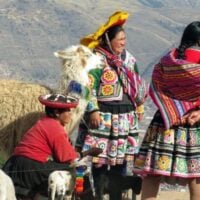Deadline: 30-Sep-2025
The United Nations International Children’s Emergency Fund is inviting applications for supporting the implementation of multi-sector interventions towards social and behavioral change.
An exciting opportunity is unfolding across Madagascar, aimed at driving sustainable development through a comprehensive social and behavior change (SBC) strategy. With a focus on regions including Antsiranana, Mahajanga, Toamasina, Antananarivo Province, Toliara Province, and Fianarantsoa, this initiative seeks to empower communities by addressing key social, health, educational, and environmental challenges in a coordinated and participatory manner.
The initiative spans several sectors, offering specialization opportunities in areas such as communication for development, conflict sensitivity, disability inclusion, emergency preparedness, and gender equality. These cross-sectoral efforts are supported by activities in education, health, nutrition, protection, livelihoods, and water, sanitation, and hygiene (WASH), all tailored to local contexts and priorities. This creates a dynamic environment for professionals and organizations to engage in meaningful work while building local capacity.
One major component of the initiative is data generation, with surveys designed to capture community behaviors, social norms, and perceptions in vital sectors. These insights will guide targeted SBC strategies and service improvements. Another important pillar is the use of behavioral science and social marketing to encourage healthier choices through techniques such as nudges and strategic messaging.
Community engagement is central to the approach, with emphasis on co-creating solutions that promote better nutrition, health, and education outcomes. The strategy includes advocacy, skill transfer, and continuous monitoring to ensure the sustainability of interventions. Youth are also a key focus, with efforts to strengthen their role in climate action, health, and community development, while providing spaces for intergenerational dialogue and digital expression.
Accountability is reinforced through inclusive decision-making, community dialogue platforms, and safe complaint mechanisms, ensuring that even the most vulnerable populations have a voice. The development and dissemination of multilingual SBC tools will support these efforts, along with participatory evaluation and stakeholder capacity building.
Finally, institutional capacity will be strengthened through specialized training, curriculum integration, and mentorship. Training institutions will be equipped with modern SBC competencies and bilingual resources, supporting long-term impact and adaptability across sectors. This initiative presents a valuable opportunity to make a tangible difference in the lives of communities across Madagascar, while advancing local leadership and innovation in development.
For more information, visit UN Partner Portal.









































